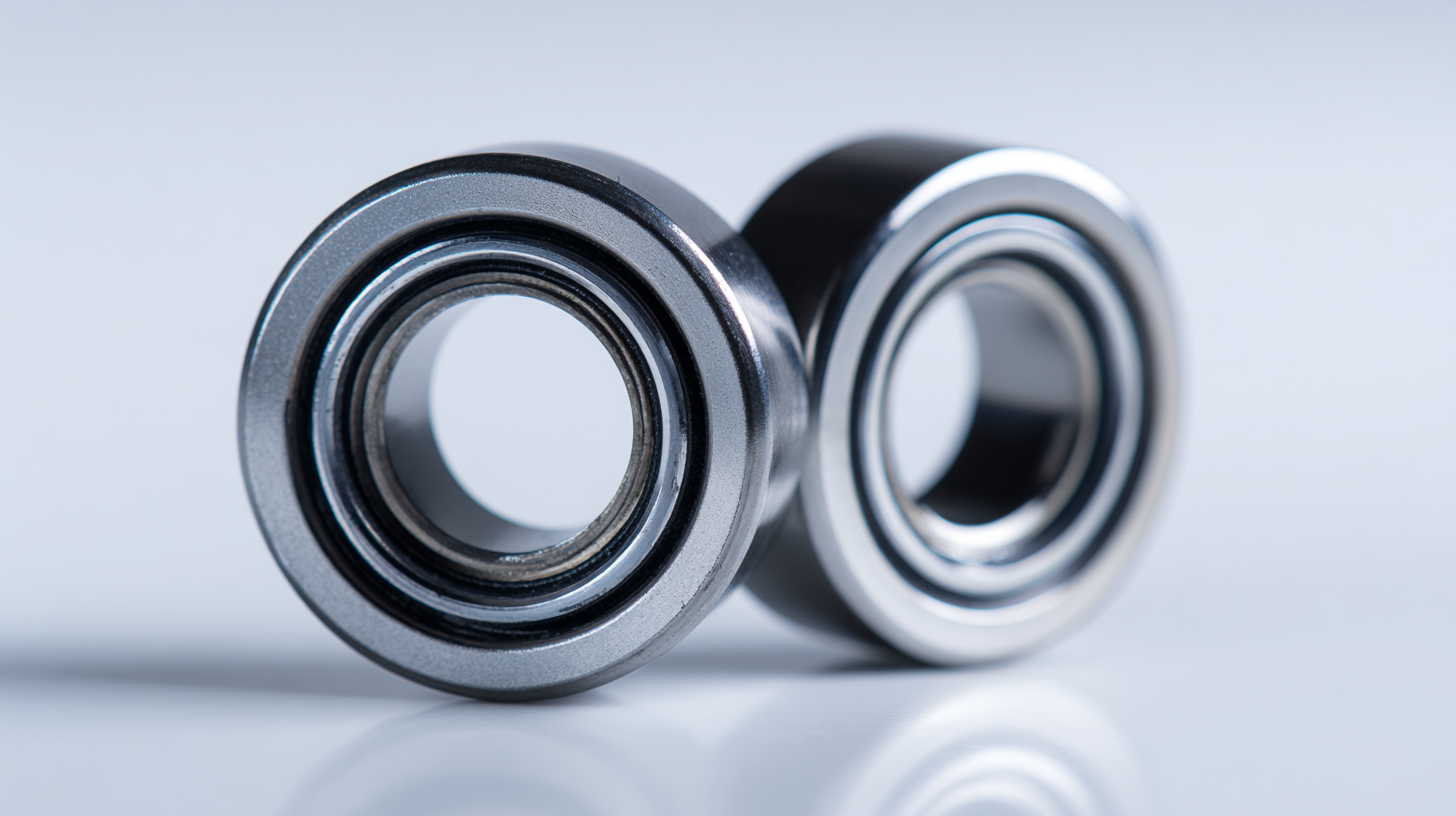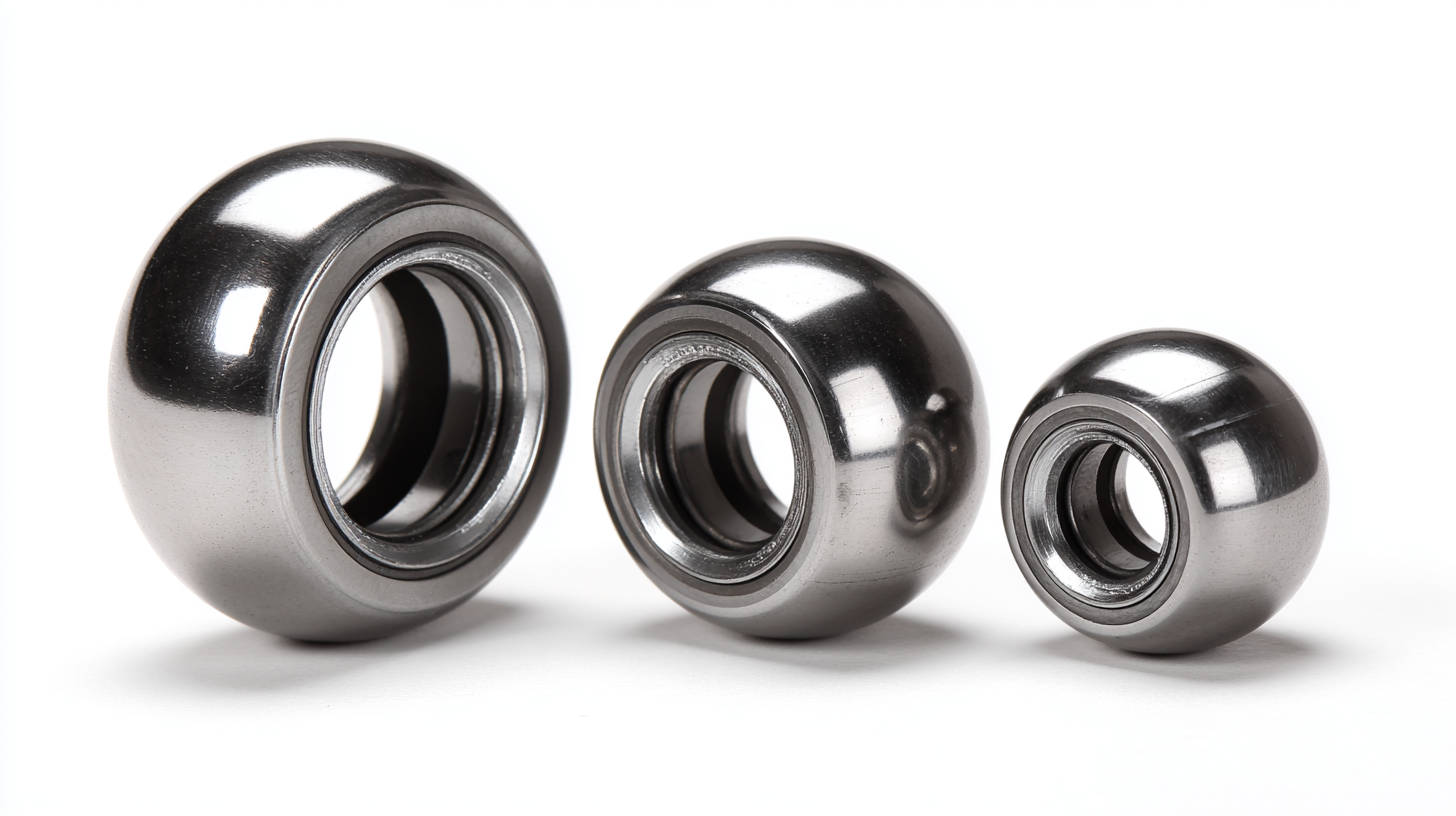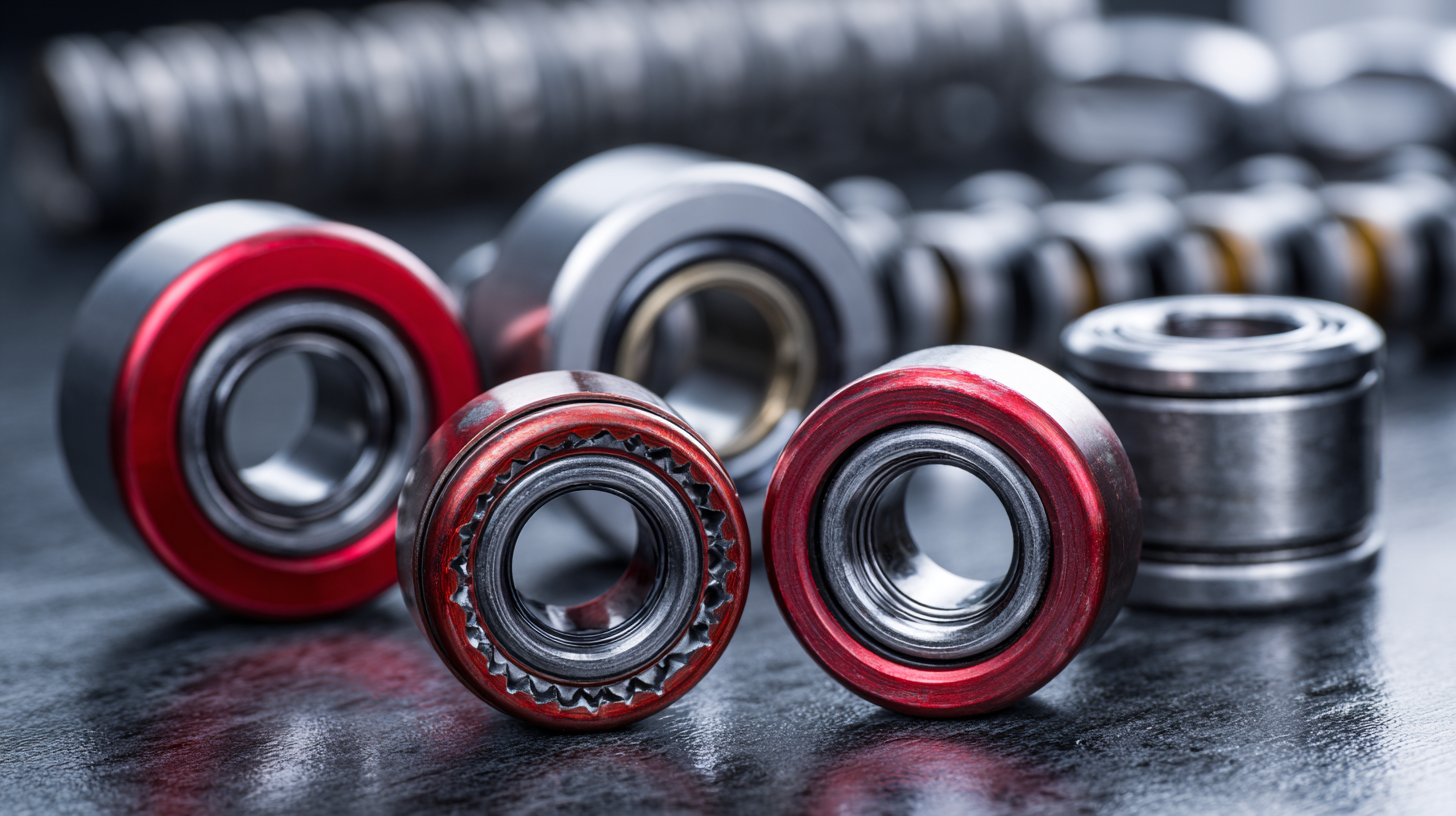When it comes to enhancing the efficiency and performance of various mechanical applications, the significance of high-quality components cannot be overstated. Among these, Steel Ball Bearings stand out as essential elements that contribute to smoother movement and reduced friction in machinery. Their inherent strength, durability, and precision make them an ideal choice for a wide array of industries, from automotive to aerospace and beyond. Utilizing the best Steel Ball Bearings in your application not only ensures optimal functionality but also extends the lifespan of your equipment. In this blog, we will explore the numerous advantages of integrating top-tier Steel Ball Bearings into your machinery, discussing how they can mitigate wear and tear, enhance energy efficiency, and ultimately lead to improved operational performance. Whether you are designing a new product or maintaining existing systems, understanding the benefits of these bearings will help you make informed decisions that drive success.

High-quality steel ball bearings are crucial for enhancing performance across various applications, primarily due to their superior durability and efficiency. Data from the International Organization for Standardization (ISO) indicates that high-grade steel bearings can reduce friction by up to 50% compared to lower-quality alternatives. This reduction not only improves the overall energy efficiency of machinery but also extends the lifespan of the components involved, leading to significant cost savings over time.
Furthermore, according to a report by the National Tooling and Machining Association, using best steel ball bearings can result in a 20% increase in operational speed. This is particularly beneficial in industries such as aerospace and automotive, where precision and reliability are paramount. Advanced steel compositions and manufacturing techniques allow for better load distribution and enhanced resistance to wear and tear, thus ensuring consistent performance under varying conditions. Investing in high-quality steel ball bearings not only ensures higher operational efficiency but also contributes to safer and more reliable machinery.

When selecting steel ball bearings for your applications, the quality of the material plays a crucial role in determining performance and longevity. High-quality steel ball bearings exhibit superior wear resistance, strength, and reduced friction, which collectively contribute to enhanced operational efficiency.
The manufacturing process—ranging from the selection of steel grades to heat treatment techniques—directly influences the integrity of the bearings. Premium materials ensure that the bearings can withstand varying loads and speeds, ultimately leading to a longer service life and lower maintenance costs.
In contrast, lower-grade materials may compromise performance, leading to quicker degradation, increased noise, and even catastrophic failure in critical applications. By investing in the best steel ball bearings made from high-quality materials, manufacturers can achieve greater reliability and consistency in their machines and systems. Additionally, superior material quality can offer better resistance to corrosion and contamination, making these bearings suitable for harsher operating environments.
In summary, when comparing steel ball bearings, prioritizing material quality is essential for achieving optimal performance and durability in any application.
When considering the cost-benefit analysis of using premium steel ball bearings, it’s essential to recognize the long-term savings they can bring. According to a study by the National Lubricating Grease Institute, quality bearings can last up to 50% longer than standard options, leading to fewer replacements and reduced downtime. In critical applications, such as aerospace and automotive, the reliability of premium bearings significantly impacts overall operational efficiency, making the initial investment worthwhile.
Tips: When selecting steel ball bearings, always check for certifications like ISO 9001, which ensure high-quality manufacturing processes. Additionally, consult the bearing lifecycle data provided by manufacturers to gauge expected performance and maintenance intervals.
Furthermore, high-grade steel ball bearings are often designed to operate in extreme conditions, providing superior resistance to wear and corrosion. The International Organization for Standardization (ISO) estimates that employing top-tier bearings can improve machinery energy efficiency by up to 10%. This results not only in lower operational costs but also in a reduced ecological footprint, aligning with modern sustainability goals.
Tips: Regularly monitor bearing performance through vibration analysis and temperature checks to preemptively identify wear issues, ensuring you maximize the lifespan of your investment.

When evaluating durability in bearings, steel ball bearings are often compared to alternative materials such as ceramic, plastic, or composite bearings. A study published by the Bearing Industry Association highlights that steel ball bearings can withstand higher loads and resist deformation better than their ceramic counterparts, offering a service life that is typically 30-50% longer in high-stress applications. This makes them an ideal choice for sectors like automotive and aerospace where reliability is crucial.
Moreover, steel ball bearings excel in operational environments that experience fluctuating temperatures and harsh conditions. According to a report from the National Lubricating Grease Institute, steel bearings maintain their performance integrity even at temperatures exceeding 400°F, unlike plastic bearings that may begin to deform or lose their lubricating properties at around 200°F. The robustness and versatility of steel ball bearings ensure their continued dominance in industrial applications, where performance and durability are top priorities.
Steel ball bearings are crucial components in various applications, enhancing performance and longevity. Industries such as automotive, aerospace, and manufacturing benefit significantly from using top-tier steel ball bearings. In the automotive sector, these bearings are essential for ensuring smooth operation in engines and drivetrains, where precision and durability directly impact fuel efficiency and overall vehicle performance. Similarly, in aerospace applications, high-quality steel ball bearings facilitate smooth movement in intricate machinery, contributing to safety and reliability in flight operations.
Manufacturing environments also see substantial advantages from implementing best-in-class steel ball bearings. In assembly lines, where machinery operates at high speeds and under considerable loads, durable bearings reduce friction and wear, leading to increased productivity and a longer lifespan for equipment. Additionally, sectors like robotics and consumer electronics benefit from the precision that top-tier bearings provide, leading to improved quality of products and enhanced user experience. By investing in premium steel ball bearings, industries can optimize their operations, minimize downtime, and ultimately achieve greater efficiency and profitability.
This chart illustrates the various advantages of using high-quality steel ball bearings in applications. Each dimension reflects a crucial benefit, rated from 1 to 10, highlighting their importance in performance and reliability.
